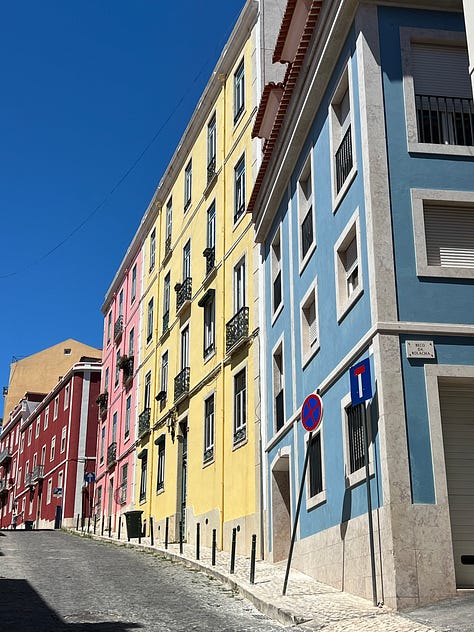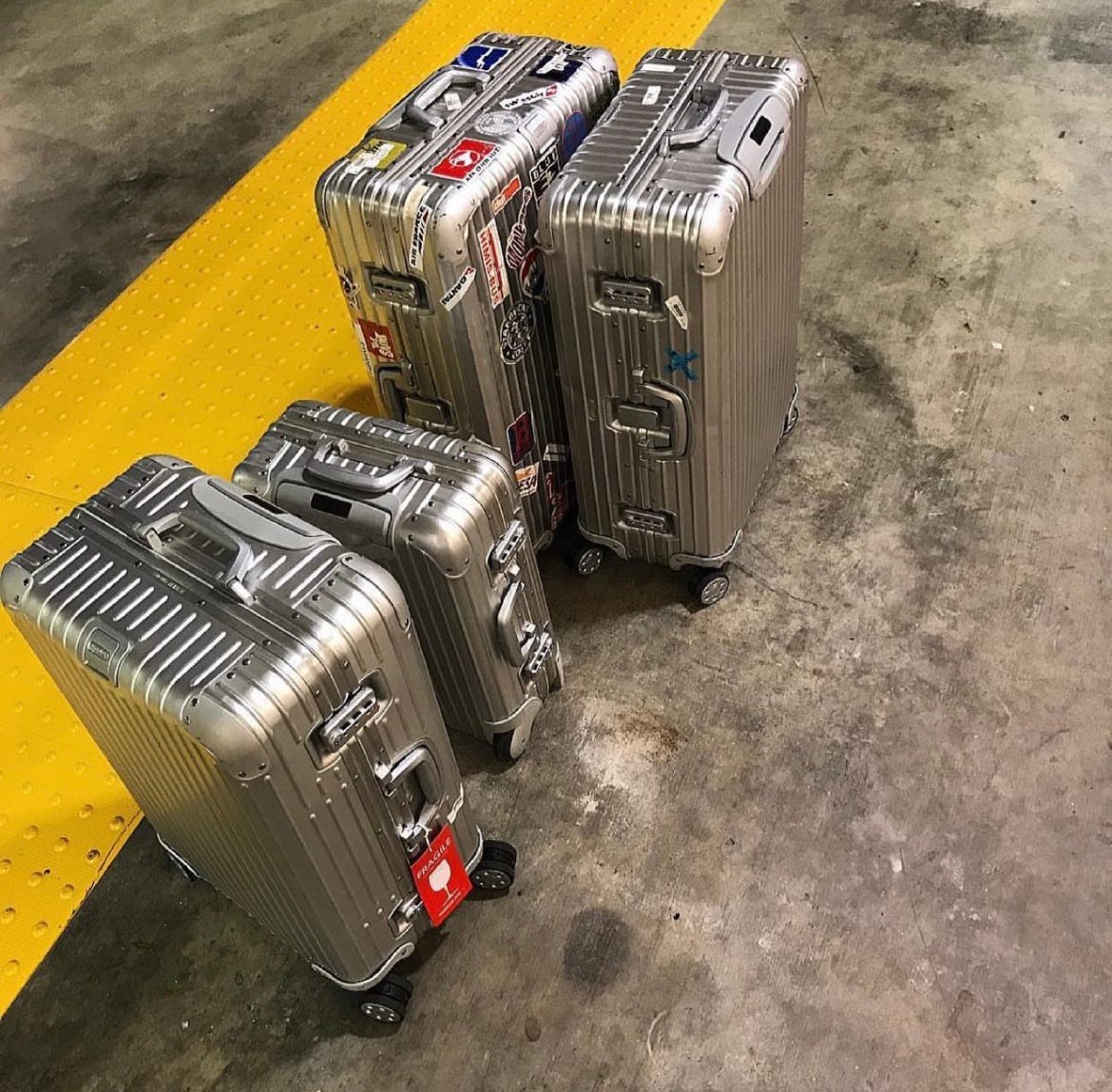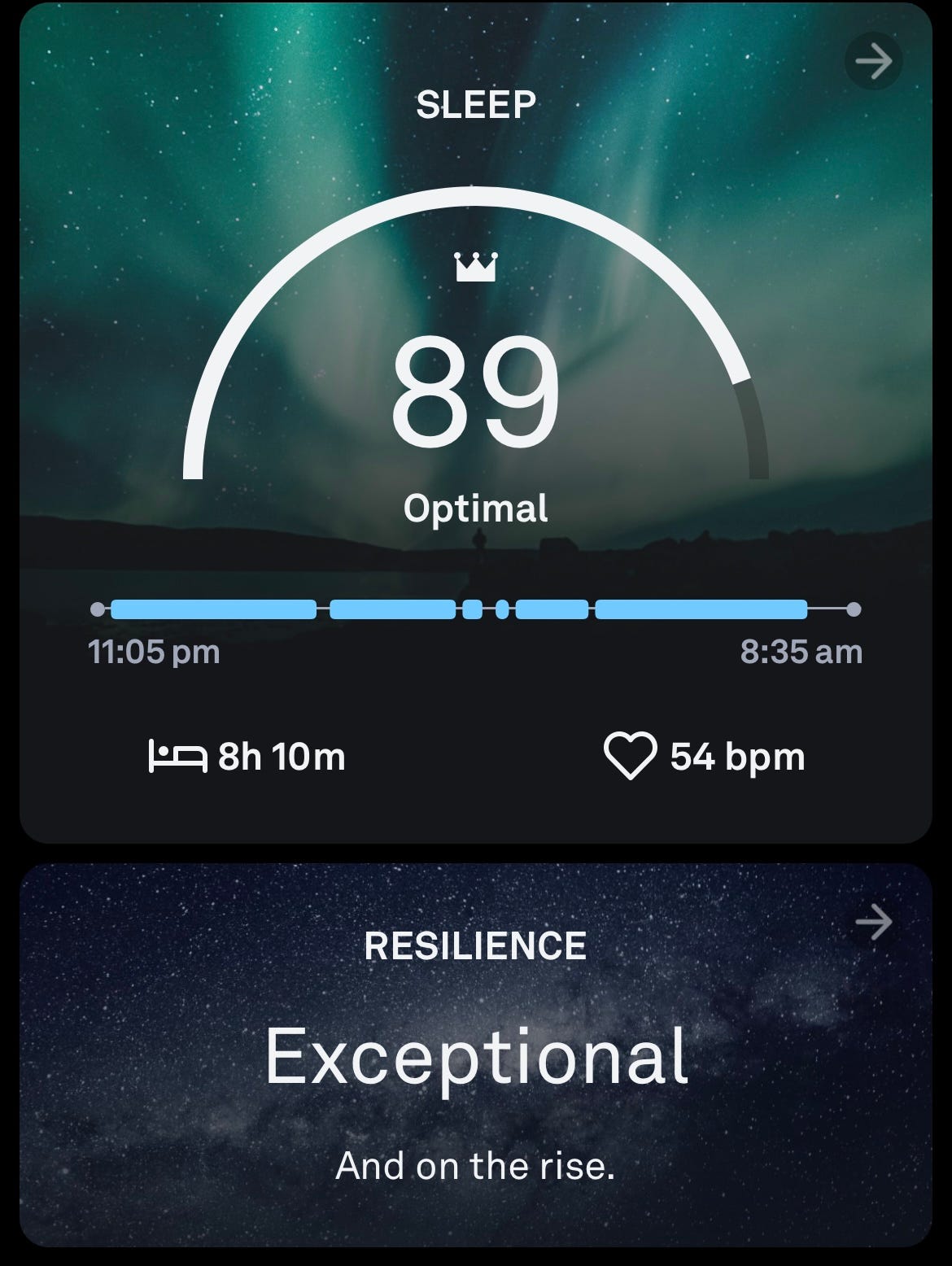Travel is the Ultimate Stress Test
What a meltdown at Newark can teach you about resilience and blood sugar.
Resilience can be defined as, “the capacity to withstand or to recover quickly from difficulties.”
If you want a real-world lesson in resilience, just head to any major airport during high season. You’ll quickly see shining examples of those who have it and those who don’t.
Take my recent red-eye flight from Newark to Paris. The 9PM departure was pushed back by seven hours, frustratingly delayed by an hour at a time. By the four-hour mark, tempers flared dramatically — something I hadn't witnessed since my days working in fashion.
When United brought out bags of chips and orange juice (liquid sugar) at 2am to placate the restless crowd just moments before cancelling our flight, I let out an audible sigh. This is not going to end well.
In the lounge, passengers could be split into two distinct groups: calm or agitated. Outliers included a few young children happily drawing on old newspapers and three enraged adults who completely lost their sh*t — crying, shoving, and yelling at gate agents.
Why do some people react so poorly and feel terrible under adverse conditions while others seem to coast through unscathed?
It comes down to capacity.
Travel is an endurance sport. 🏃🏽
Even if you've reduced your vacation stress by following my hacks for upgrading to first class, managing jet lag, and staying healthy on the road, travel these days is filled with unpredictable twists and turns. Often, there's the discomfort of long lines, lost sleep, missed meals, heavy bags, cold planes, and, in this case, unpleasant behavior from fellow passengers.
We often assume that rude and aggressive people are simply jerks by choice. While emotional triggers are very real, I'd venture to say that some of the temper tantrums I witnessed could be attributed to being tired and hungry.
Fatigue, irritability, and rapid mood swings — especially the very common state of being "hangry" — are hallmarks of blood sugar dysregulation.
In my practice, we talk a lot about how health optimization expands our capacity. This isn't just about increased energy, strength, and pleasure but also our ability to manage stressors, whether it's an unexpected challenge (mayhem at Newark) or a contagious virus (COVID).
Resilience shows up in many forms from good energy to strong immunity to emotional regulation but not everyone has access to it.
How long can you go without food before you start to crash?
Can you function if you miss hours of sleep?
Are you able to lift heavy bags and walk a distance?
Do you catch whatever is going around?
Do you become easily agitated when plans change?
We often focus on "getting healthy" to avoid future chronic illness, but there are tangible rewards in the present for your good decisions.
When we are more metabolically flexible with balanced blood sugar, we can adapt to changes in our circumstances and environment with greater ease. We can miss a meal without feeling like we are "starving." We can be deprived of sleep without getting cranky.
When we are more physically fit with lean muscle, we have the endurance for long travel days and the strength to put our bags in the overhead compartment.



I can honestly say that the benefits of the past three years of health optimization showed up for me on this last vacation.
My ambitious itinerary, which included work meetings, a friend’s wedding, and my father’s 87th birthday celebration, spanned six different cities in four countries over 16 days. It looked something like this:
2 days in New York
2 days in Paris
4 days in Côte d'Azur
4 days in Cascais
3 days in Lisbon
1 day in London
Despite the grueling travel schedule with multiple flight delays and early wake-up calls, I enjoyed every minute of my trip. The benefit of my expanded capacity meant I could explore new places with the people I love. There were no meltdowns or health issues to derail my fun.
When I landed back in LA, I acclimated quickly with no jet lag, despite traveling through two time zones. My Oura ring showed that my circadian rhythm regulated almost immediately and returned to normal wake and sleep times. Post-vacation, my resting heart rate was lower and my heart rate variability was higher — signs that I was well-rested and recharged.
Resilience? Exceptional — and on the rise. 🚀
The takeaway: Resilience not only helps you adapt to challenges with ease, but it also rewards you with access to a reserve of extra energy when you need it most — to enjoy your extraordinary life.
Related Posts:
Decoding Your Dashboard: Optimizing Metabolic Health — 5 Steps to Manage Your Blood Sugar
Optimized on the Fly: A Health Coach’s Guide to Conquering Jet Lag
Vacation Mode Activated: The essential travel supplements and products I pack to stay healthy
All writing is for informational and entertainment purposes only and is not a substitute for medical advice, diagnosis or treatment.
INTERESTED IN WORKING WITH ME? Inquire about 1:1 health coaching






I love this healthy living perspective— rather than playing catch up when crises happen (as they do in travel and daily life!) you soar through traveling and enjoy life more.
Couldn’t agree more! Travel SNAFUs have been happening all month, and I keep watching people melt down. It’s been an interesting lesson to just sit back, let go of what I can’t control, and go back to reading a good book.